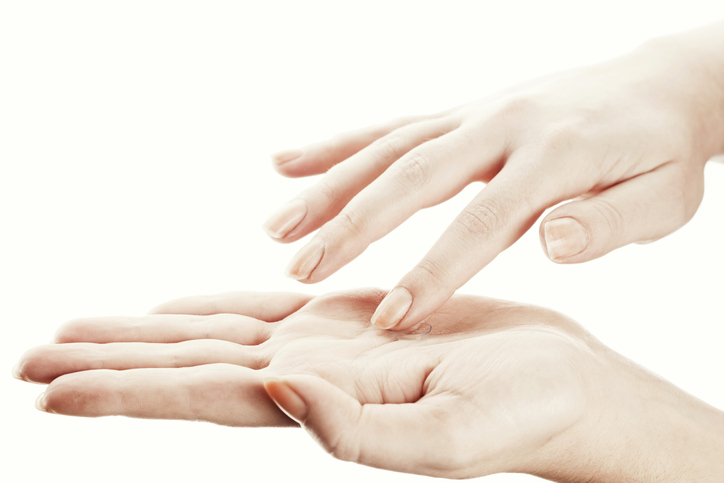 |
|
Contact lenses need to be thoroughly rubbed and rinsed with disinfecting solution before being worn to reduce the number of coronaviruses on the surface, this study found. Photo: Getty Images |
It has been proposed that one portal of entry for SARS-CoV-2 (the virus responsible for COVID-19) is the eye, and many have assumed that contact lens wearers are at an increased risk because they touch their eyes more, as they need to insert and remove lenses—usually daily. While the Centers for Disease Control and Prevention have recommended hydrogen peroxide-based systems as an effective disinfection method against the virus that causes COVID-19, researchers at the School of Optometry and Vision Science at the University of New South Wales in Australia have noted that there are no studies examining the efficacy of current multipurpose disinfecting solutions. They recently conducted a study that determined oxidative contact lens disinfecting solutions provide superior antiviral activity against a coronavirus surrogate of SARS-CoV-2, unless wearers use the full regimen test (rub, rinse, disinfect).
The researchers used three multipurpose solutions: Biotrue (Bausch + Lomb), Renu Advanced (Bausch + Lomb) and Acuvue RevitaLens (Johnson & Johnson Vision), as well as AOSept Plus (hydrogen peroxide, Alcon) and Cleadew (povidone iodine, Ophtecs). Each solution was mixed with the coronavirus mouse hepatitis virus and incubated at room temperature for the specified disinfection time. This virus surrogate is recognized by the Therapeutic Goods Administration of Australia as an appropriate stand-in for SARS-CoV-2 in testing the effectiveness of disinfectants, as it has a very similar mechanism of infection and produces severe acute respiratory disease in mice. The researchers then compared viral load reduction for each disinfectant with a control solution of saline.
The three multipurpose disinfecting solutions did not kill the coronavirus at the manufacturers’ recommended disinfection time during standalone testing. After treatment, the virus’s titer of each solution was similar to the negative control. AOSept Plus and Cleadew, on the other hand, significantly reduced the presence of coronaviruses to below the detection limit at each manufacturer’s disinfection time.
However, the researchers found lenses that were rubbed and rinsed before being treated with Biotrue showed a significant reduction in the number of coronaviruses that were able to form plaques compared with lenses only incubated in Biotrue without rubbing and rinsing.
“The concentration of quaternary ammonium disinfectants in contact lens multipurpose disinfecting solutions (0.00005% to 0.0003%) is substantially less than in other disinfectants (≥0.1%), and this may be one reason for the lack of efficacy of the quaternary ammonium disinfectants in the current study,” the study authors wrote. “Contact lens prescribers should reinforce the need to rub and rinse lenses with multipurpose disinfecting solutions, as this is likely to reduce the numbers of any coronaviruses on the lenses.”
Yasir M, Vijay AK, WIllcox M. Antiviral effect of multipurpose contact lens disinfecting solutions against coronavirus. Cont Lens Anterior Eye. August 27, 2021. [Epub ahead of print]. |

